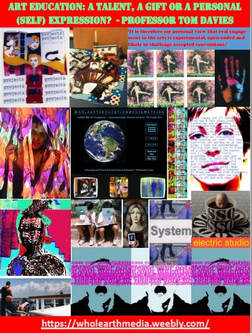CIVAE 2019 is an international congress whose mission is to offer a platform for teachers, researchers and artists from different disciplines: music, dance, theatre, poetry, drawing, painting, sculpture, photography and cinema. The goal being to place a highlight on the value of the arts in education and promote their development from an interdisciplinary approach.
The congress was held as a virtual platform on November 13th and 14th 2019 and the broader membership included university students, graduates and doctoral students interested in the arts from an educational perspective.
The themes of the congress included, but were not limited to:
The role of the arts in education; Learning in and through the Arts; Methodologies, experiences and projects; Ethical aspects in artistic education; Teaching and trans-disciplinary learning; Interdisciplinary artistic projects; Curriculum development and evaluation; Policies in artistic education; Research methods for the Arts; Teaching inside and outside the classroom; The psychology and aesthetics of art; History of Art; Technology and Creativity; Internships and job placements; Virtual reality (VR); The role of educational institutions (museums/theatres); musical education; dance in education; Artistic projects and special educational needs; Programs, platforms and virtual communities; Multimedia environments, social networks, LSM; 3D animation, video games and gamification.
The congress was held as a virtual platform on November 13th and 14th 2019 and the broader membership included university students, graduates and doctoral students interested in the arts from an educational perspective.
The themes of the congress included, but were not limited to:
The role of the arts in education; Learning in and through the Arts; Methodologies, experiences and projects; Ethical aspects in artistic education; Teaching and trans-disciplinary learning; Interdisciplinary artistic projects; Curriculum development and evaluation; Policies in artistic education; Research methods for the Arts; Teaching inside and outside the classroom; The psychology and aesthetics of art; History of Art; Technology and Creativity; Internships and job placements; Virtual reality (VR); The role of educational institutions (museums/theatres); musical education; dance in education; Artistic projects and special educational needs; Programs, platforms and virtual communities; Multimedia environments, social networks, LSM; 3D animation, video games and gamification.
|
Professor Tom Davies was accepted by the scientific committee peer review, for the 1st Virtual Congress on Arts in Education -
A paper entitled: ‘Art Education: a talent, a gift or a personal (self) expression? Did the academic theory of the last few decades help teachers and their respective learning communities? We are pleased to be able to present Toms complete paper on Wholearthmedia
| |||||||



